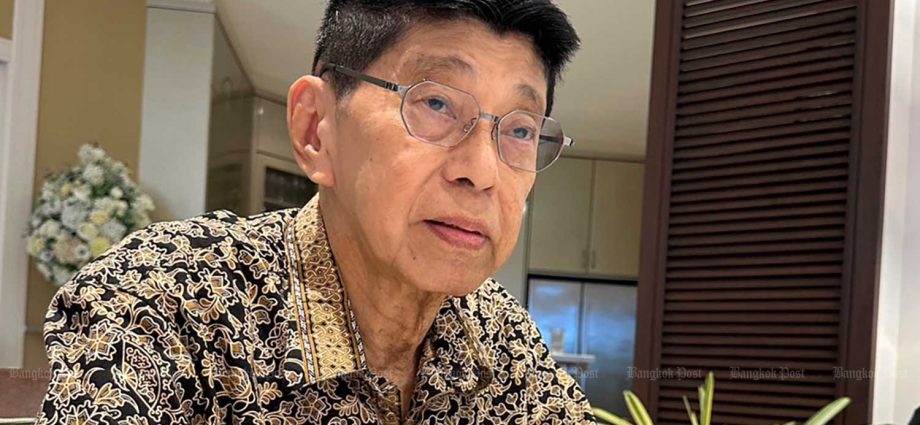No public vote on proposed drafts
PUBLISHED : 25 Sep 2023 at 04:48

Any new constitution draft may be fine-tuned to cancel the requirement for referendums on possible amendments, according to former deputy prime minister Wissanu Krea-ngam.
He was speaking after the committee drawing up a referendum on a charter rewrite announced it was limiting the number of members to no more than 30 lawmakers and people from various professions.
Mr Wissanu, a well-known legal expert, said on Sunday he agreed with the government’s plan to be selective in terms of which sections of the charter to amend.
Changes may be made to many sections at the same time. However, a referendum will need to be conducted if changes are made to Chapters 1, 2 and 15, he said.
Chapter 1 contains sections defining Thailand as a single, indivisible kingdom with a democratic regime and the King as the head of state.
Chapter 2 stipulates sections pertaining to royal prerogatives.
Chapter 15 pertains to the changes to the powers and duties of the independent agencies.
The government has already announced it will leave Chapters 1 and 2 untouched.
Mr Wissanu said that since any changes to Section 15 may affect the powers and duties of independent agencies, amendments in such areas should be avoided for the time being.
No referendum is compulsory for alterations to Section 3 on people’s rights and freedom, Section 4 on the state’s duties, Section 5 on the duties of the people, Section 6 on the state policies, Section 7 on parliament, Section 8 on the cabinet, Section 9 on conflicts of interest and Section 10 on the courts.
There would also be no need to organise a referendum on future amendments if the upcoming changes remove the requirement, Mr Wissanu said.
The referendum requirement is contained in Section 256.
Mr Wissanu added that two referendums are to be conducted under the current plan.
First, voters must decide if they want the charter to be rewritten and, after the amendment is drafted, a second referendum will gauge whether to adopt it.
Meanwhile, Democrat Party acting leader Jurin Laksanawisit said he opposed using the abrogated 1997 constitution as a prototype, saying it gives too much power to the executive branch and inhibits the opposition’s ability to keep tabs on the government’s work.

